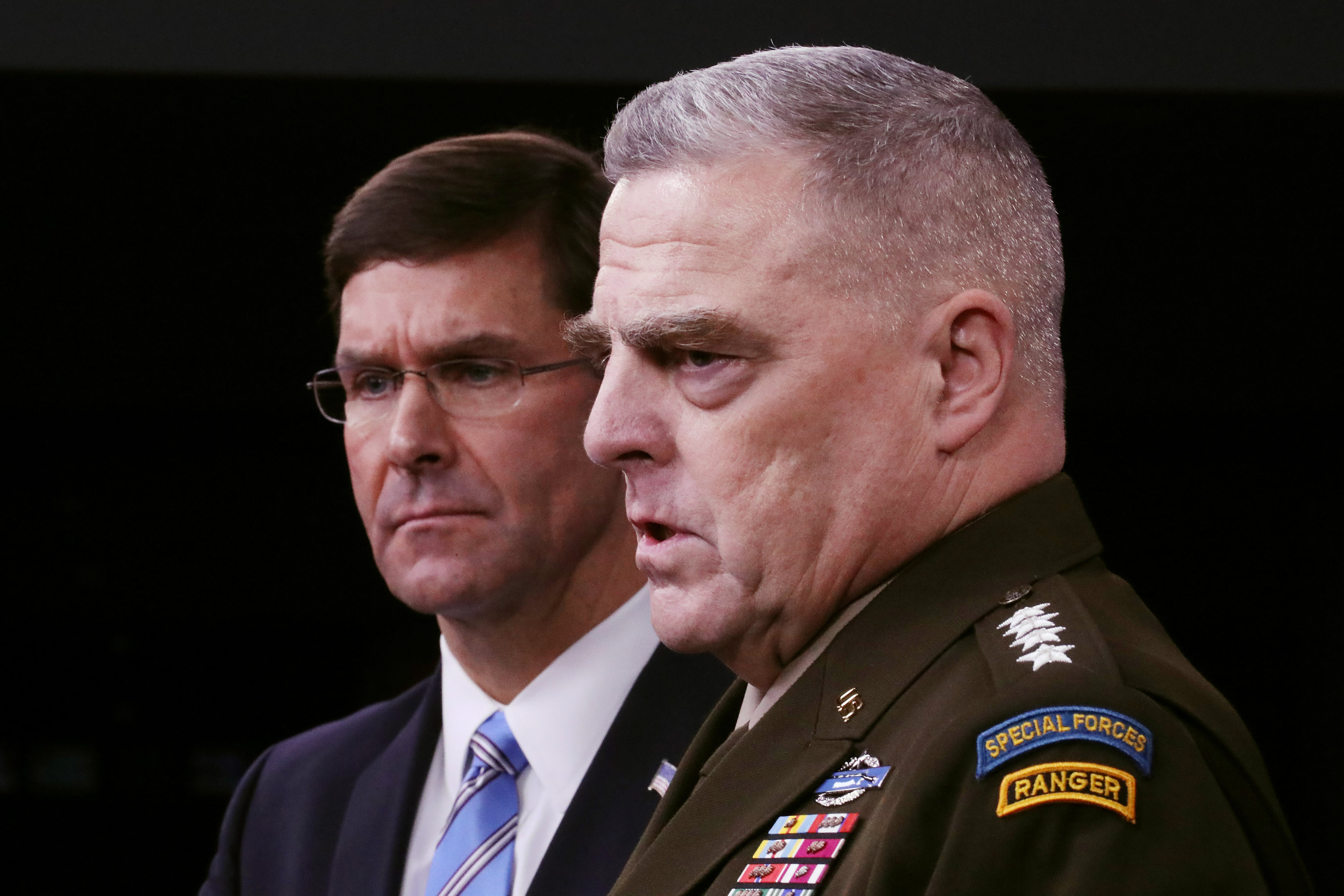The Iraqi military said two rockets landed near the Baghdad International Airport Wednesday making it the tenth attack against U.S. installations or interests in Iraq over the last several weeks.
And it’s the second attack near the Baghdad airport in a week. On Monday, Iraq said four rockets landed near a military camp near the airport wounding six Iraqi security fores.
Operation Inherent Resolve — the U.S.-led mission to defeat ISIS in Iraq and Syria — has not yet responded to requests for comment about the recent rocket attack.
A number of recent rocket attacks have been blamed on Iran-backed militias who appear now to be using more lethal and longer range 122 mm rockets, a U.S official told Military Times on condition of anonymity because the individual was not authorized to speak on the record.
Previous rocket attacks have used 107 mm rockets, the U.S. official said.
RELATED

On Dec. 3, several 122 mm rockets struck al-Asad airbase. A U.S. official told Military Times that the U.S. believes an Iran-aligned Shia militia group known as Kataib Hezb’Allah was responsible for the attack.
Reuters reported Wednesday, citing a U.S. military official, that the level of complexity and volume of rockets fired during an attack is increasing.
The U.S. military official also told Reuters that Iran-backed militias are approaching a red line where the U.S. will respond with force and “no one will like the outcome."
“There is a point at which their actions change things on the ground and make it more likely that some other actions, some other choices made – by somebody, whether it’s them or us – will escalate unintentionally," the U.S. military official told Reuters.
Both the Secretary of Defense Mark Esper and Joint Chiefs chairman Gen. Mark Milley warned Iran Wednesday during a House Armed Services Committee Hearing that the U.S. was prepared to use force to defend itself.
“Iran should not mistake the United States’ restraint for an unwillingness to respond with decisive military force should our forces or interests be attacked," Esper told lawmakers Wednesday on Capitol Hill.
Milley told lawmakers that Iran should be “very very cautious” with how it proceeds.
“We are in a period of heightened risk with respect to Iran,” Milley said Wednesday. But the top American commander explained that “restraint in this particular situation is an appropriate response.”
“The ball is in the Iranian court," Milley said. How they respond and the size and scope of that response will determine a U.S. answer, he explained to lawmakers.
Over the last six months the U.S. has deployed nearly 14,000 additional troops to the Middle East to counter Iran’s malign behavior following attacks on commercial ships in the Persian Gulf and Iran’s suspected involvement in the September attack on two Saudi Arabian oil fields.
Esper says the U.S. is considering additional forces to the region to counter and deter Iran.
“Tehran’s efforts to destabilize the region have increased in recent months ... To address these threats, we are taking a deliberate approach to strengthen our defenses, enable our partners to better defend themselves, and refine our response options," Esper said Wednesday.
Shawn Snow is the senior reporter for Marine Corps Times and a Marine Corps veteran.





